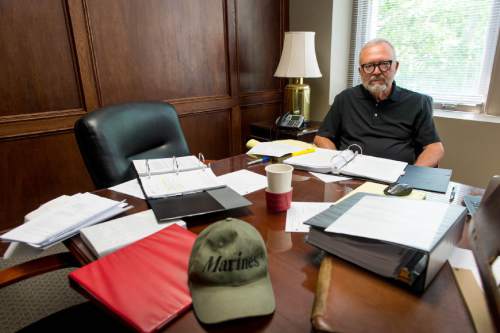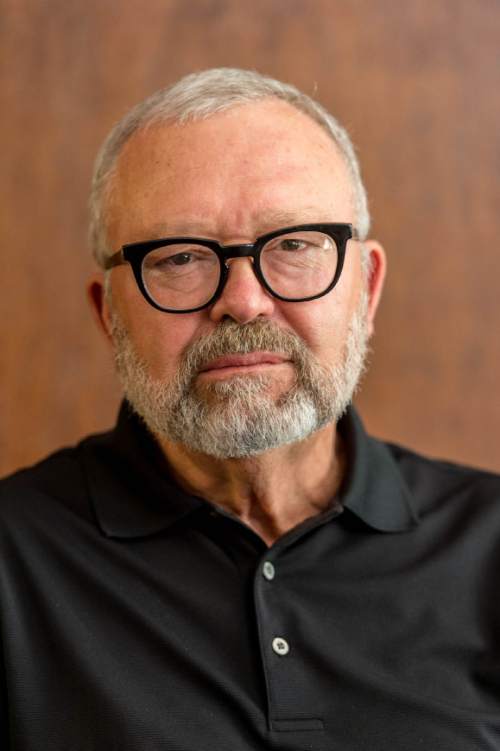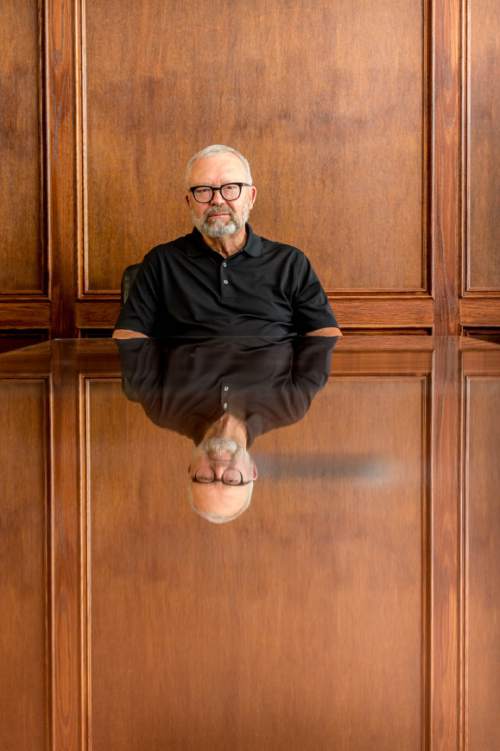This is an archived article that was published on sltrib.com in 2014, and information in the article may be outdated. It is provided only for personal research purposes and may not be reprinted.
A federal judge in Utah found Thursday that the FBI's report on a witness tampering allegation in a case involving Oklahoma City bombing records was incomplete and that the bureau was late in filing it with the court.
But U.S. District Judge Clark Waddoups has delayed a decision on whether to hold the Bureau in contempt for the failure.
Waddoups also is still mulling whether to appoint a special master to oversee compliance with court orders in the case, in which Salt Lake City attorney Jesse Trentadue is suing the FBI over videos and documents he requested under the
produced the report">Freedom of Information Act (FOIA). On Thursday, he asked attorneys to submit legal briefs on the issue.
The tampering claim came up during a four-day bench trial in July on Trentadue's lawsuit, which claims the FBI failed to conduct a search reasonably calculated to locate all requested records in its possession. The FBI has responded that it conducted an "exhaustive" search; Waddoups took the case under consideration and has yet to rule.
On the second day of trial, Trentadue said he had just learned one of his witnesses, John Matthews, who he describes as a former undercover operative for the government, was backing out of testifying after talking to someone with the FBI. According to court documents, Matthews planned to testify that he believed the FBI was monitoring bomber Timothy McVeigh in the run up to the 1995 detonation at the Murrah Building in Oklahoma City.
The testimony would have established a motive for the FBI to not conduct a good faith search, Trentadue argues. In a memorandum filed Wednesday, he claims there is a "strong possibility" a surveillance camera recorded a passenger riding with McVeigh in a truck filled with explosives the day of the bombing — and that the videotape "would show the passenger was an FBI undercover operative."
The FBI has denied having any advance knowledge of a bombing plot.
Waddoups had ordered the FBI to investigate whether Matthews was coerced into not testifying and to file a report on its findings far enough in advance of Thursday's hearing to give Trentadue time to prepare subpoenas, if necessary.
The hearing was originally intended for testimony on the tampering allegation but Waddoups decided last week to discuss the contempt and special master issues because the report had not been completed.
The FBI produced the report the next day, saying the evidence showed there was no witness tampering and asking Waddoups to cancel the hearing. The judge denied the request.
At Thursday's hearing, Trentadue said FBI personnel conducting the probe never interviewed him or Roger Charles, a freelance journalist and investigator, about their communications with Matthews. Both have said that when they called Matthews during the trial to discuss his absence, the man said he had been threatened by the FBI.
"That's not an investigation," Trentadue said. "That's a whitewash."
Department of Justice attorney Kathryn Wyer, who represents the FBI, disagreed that the filing of the report was untimely. She noted Waddoups never gave a specific deadline to turn in the report or a time line for issuing subpoenas.
Wyer also insisted the bureau conducted an appropriate investigation, which proves "beyond a doubt no witness tampering occurred."
Matthews initiated contact with the FBI, she said, and recordings of the conversations show he had decided before he called not to testify and that no on threatened him.
In addition, Wyer claimed Trentadue made up a conversation he had with a former FBI agent that he cited in support of the tampering allegation. Trentadue says he has emails to back up that the talk took place.
Trentadue believes the records he is seeking in his lawsuit contain information about the death of his brother in a federal prison in Oklahoma City a few months after the April 19, 1995, bombing that killed 168 people.
Several investigations by state and federal agencies concluded Kenneth Trentadue, a 44-year-old convicted bank robber, committed suicide by hanging himself from a noose made of torn bed sheets. His family, though, believes the inmate was mistaken for a bombing conspirator dubbed John Doe No. 2 by authorities and that guards strangled him in an interrogation that got out of hand — an allegation that federal officials adamantly deny.
Twitter: @PamelaMansonSLC







